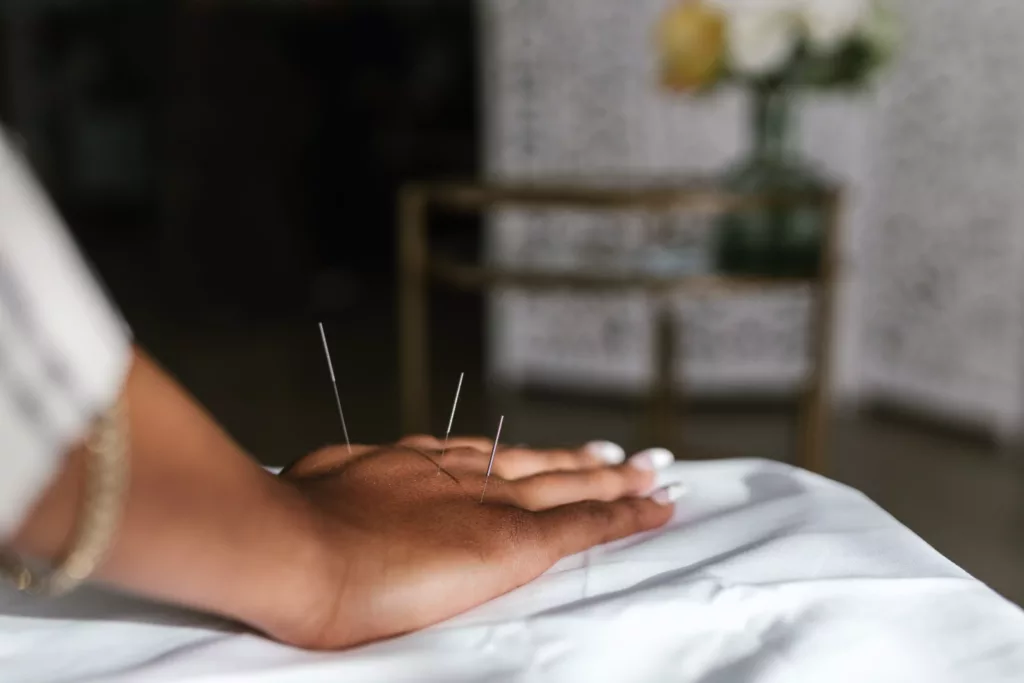If you suffer from an autoimmune disorder, you probably also struggle with chronic pain. The two often go hand in hand. While you are busy getting treatment from your doctor, you might also want to try these methods for managing your pain.
1. Changing Your Diet

Medication alone is not the only way for patients to manage their symptoms. Making dietary changes and learning how to create healthy eating habits can go a long way towards improving comfort.
Diets that promote increased intake of fruits, vegetables and those that minimize dairy, red meat and processed foods that could create problems for those suffering from an autoimmune disorder can be a very effective tool for managing pain.
Speaking with a doctor or consulting with a nutritionist or other healthcare provider regarding any dietary changes that may be of benefit can allow patients to learn a great deal.
You may also want to try some specific diet plans for a short period of time, record your symptoms, and see if you noticed any changes. Some of these diet plans include:
Autoimmune protocol (AIP)
Gluten-free
Low FODMAP
2. Taking Prescription Drugs

While OTC drugs like NSAIDs can often be very effective at reducing pain to a more manageable level, there are several autoimmune diseases which may call for stronger medications. Prescription-strength drugs are typically far more powerful than OTC medications, but these drugs require the approval of a doctor.
There are many different categories of prescription-strength pain killers as well as other classes of drugs that may be able to reduce the frequency and severity of symptoms and general discomfort.
Many prescription pain management medications can be habit forming, especially when taken regularly, and patients would be wise to work closely with their doctor or healthcare provider to ensure all drugs are taken safely and effectively.
3. Taking OTC Drugs

While there are many natural ways to help manage your autoimmune disease pain, it is worth nothing that there are some medications to help. You should always talk to your doctor about these options, even if you are trying to add more natural remedies to your pain management plan.
Pain killers that can be purchased without a prescription can often be an important resource for those who are struggling to manage the frequent pain and long-term discomfort caused by autoimmune diseases and other medical conditions. Most of these medications fall into a category known as nonsteroidal anti-inflammatory drugs (NSAID) and are generally known to produce little to no side effects.
Although typically safe for general use, those who are interested in incorporating NSAIDs and other OTC medications into their pain-management strategy should first consult a doctor. Finding the best medications, fine-tuning the dosage and ensuring that OTC drugs are being taken safely are never concerns that should go overlooked.
Speaking with a doctor before taking an OTC medication can be especially important for patients who suffer from drug allergies and those who may be taking other medications which cannot be safely combined.
4. Lifestyle Changes

While proper diet and regular exercise are both essential to good health, there are other lifestyle changes that could have a positive impact on symptoms and comfort levels. Good sleeping habits can go a long way towards improving comfort, boosting energy levels and ensuring that efforts to reduce pain and manage symptoms are met with greater success.
Even making an effort to drink more water can be of potential benefit, especially for conditions and medical issues which may be complicated by inadequate hydration. Finding ways to reduce and manage stress levels in order to promote greater relaxation can also be helpful.
5. Alternative Medicine

There are numerous care providers who may be able to offer a range of services to assist those who suffer from an autoimmune disorder. Chiropractic care can often make a real difference for those who suffer from arthritis or related conditions and treatment options like acupuncture could greatly improve the level of comfort that sufferers will be able to enjoy.
While there are no treatments, alternative or otherwise, that can cure autoimmune disorders, regular visits to a masseuse or herbal remedies could end up being valuable tools for those who are seeking to create and implement a more effective pain-management strategy.
6. Getting More Physical Activity

You may think that because of your autoimmune disease, you won’t get a lot of exercise, but the opposite is actually true. Staying fit and active is another way that sufferers may be able to minimize flare-ups and ensure that their other efforts to manage and reduce pain are able to be as effective as possible.
Regular exercise can help to alleviate the inflammation which causes pain and the right workout routine can even allow suffers to train their body’s natural pain response in order to further minimize discomfort.
Yoga, swimming and other low-impact workout options can often be ideally suited to those who have medical conditions which may limit range of motion or leave sufferers unable to engage in certain types of activities.
You of course should always listen to your body and not overdo it. If you are having a day with a lot of pain and fatigue, take it easy. But focus more on physical activity when you are having a good day.


